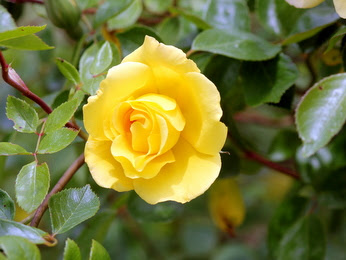 |
| Photo by Quino Al on Unsplash |
August has been nothing but “feels like” temperatures over
100 degrees, twice-a-day trips to the barn to doctor a horse who is getting a
little fed up with the routine*, buckets of sweat, changing my clothes two and
three times a day, and trying to muster enough energy to keep up with the rest
of my life. When I think about the past few weeks, I think of the word
“heat”—both physical heat, and the “heat” of adversity.
Caring for an injured horse in August in Florida qualifies
as adversity in that it’s physically grueling, expensive, worrisome, and the
time and energy I’m expending taking care of him is being drawn from other
areas of my life. It’s not a devastating situation, but it is challenging.
Life has turned up the heat—and while I may complain about
it, heat is not all bad. We cook with it and create beautiful and useful things
with it. Heat both softens and hardens. It strengthens and refines.
Heat—adversity—in our lives does the same for us. It
distills and purifies our best qualities. It both softens our hearts and
hardens our resolve. Sometimes it brings to light our worst qualities so
we can acknowledge and work on them. If we never face even the smallest amount
of adversity, we’ll be ill-equipped to cope when one of life’s inevitable
traumas occurs.
Richelle E. Goodrich wrote in Making Wishes, “If you
couldn’t sense heat, you’d not be alive. And if that heat never grew
uncomfortable, you would never move. And if you were stagnant—unchallenged by
unpredictable flares—you would never grow capable of shielding yourself from
harsher flames. So yes, life was meant to drag you straight through the
fire.”
Coping with Tank’s minor injury has forced me to overcome
laziness, become more creative, and plan more carefully so I can keep up with
other responsibilities. I’ve had to pare away some inessentials because I
simply do not have time or energy for them. I’ve had to push myself when I
wanted to quit, and I’ve had to lie down and take a nap because I was too tired
to do one more thing.
I like adversity about as much as I like August (not much,
in case I’ve been unclear). I don’t wish for it, but I also try not to wish it
away because I know there’s value in it. I learn, I grow, I become a more
refined version of me. One better able to handle whatever adversity life
chooses to throw at me next.
What has adversity taught you?

































.jpg)


